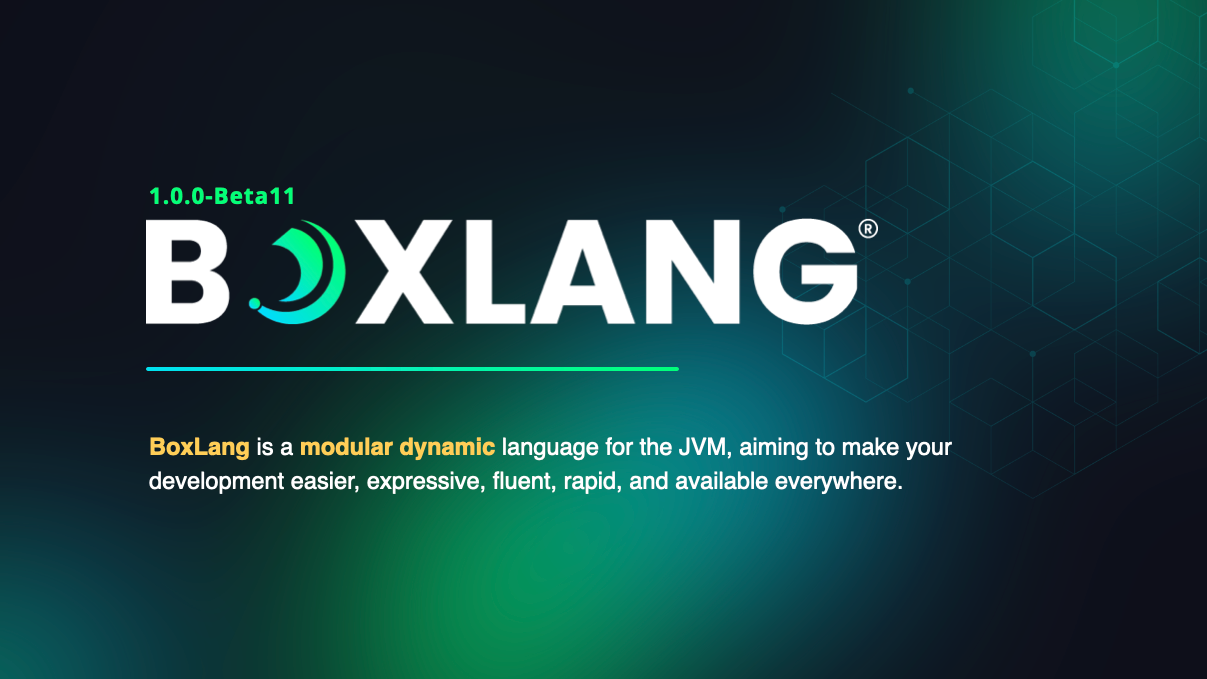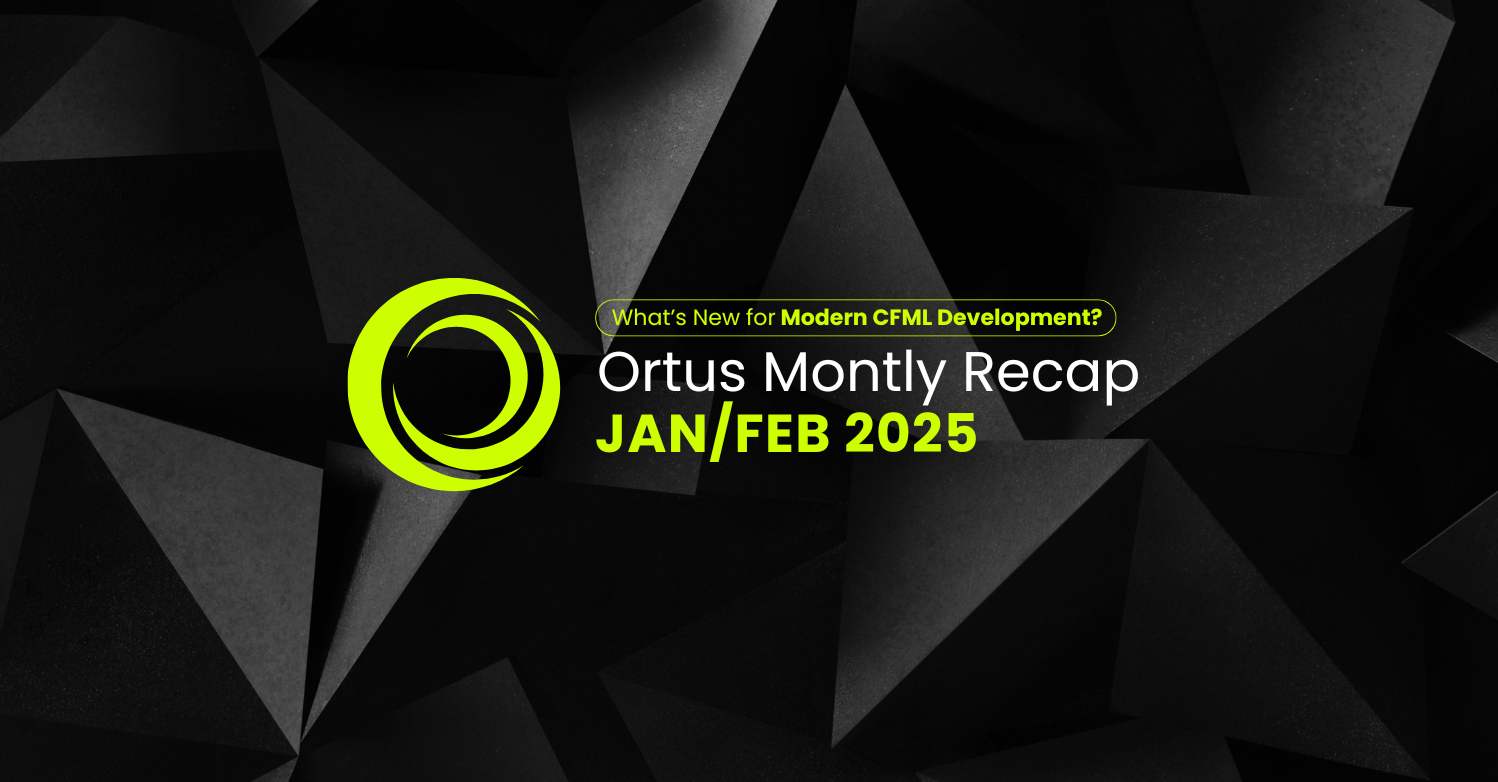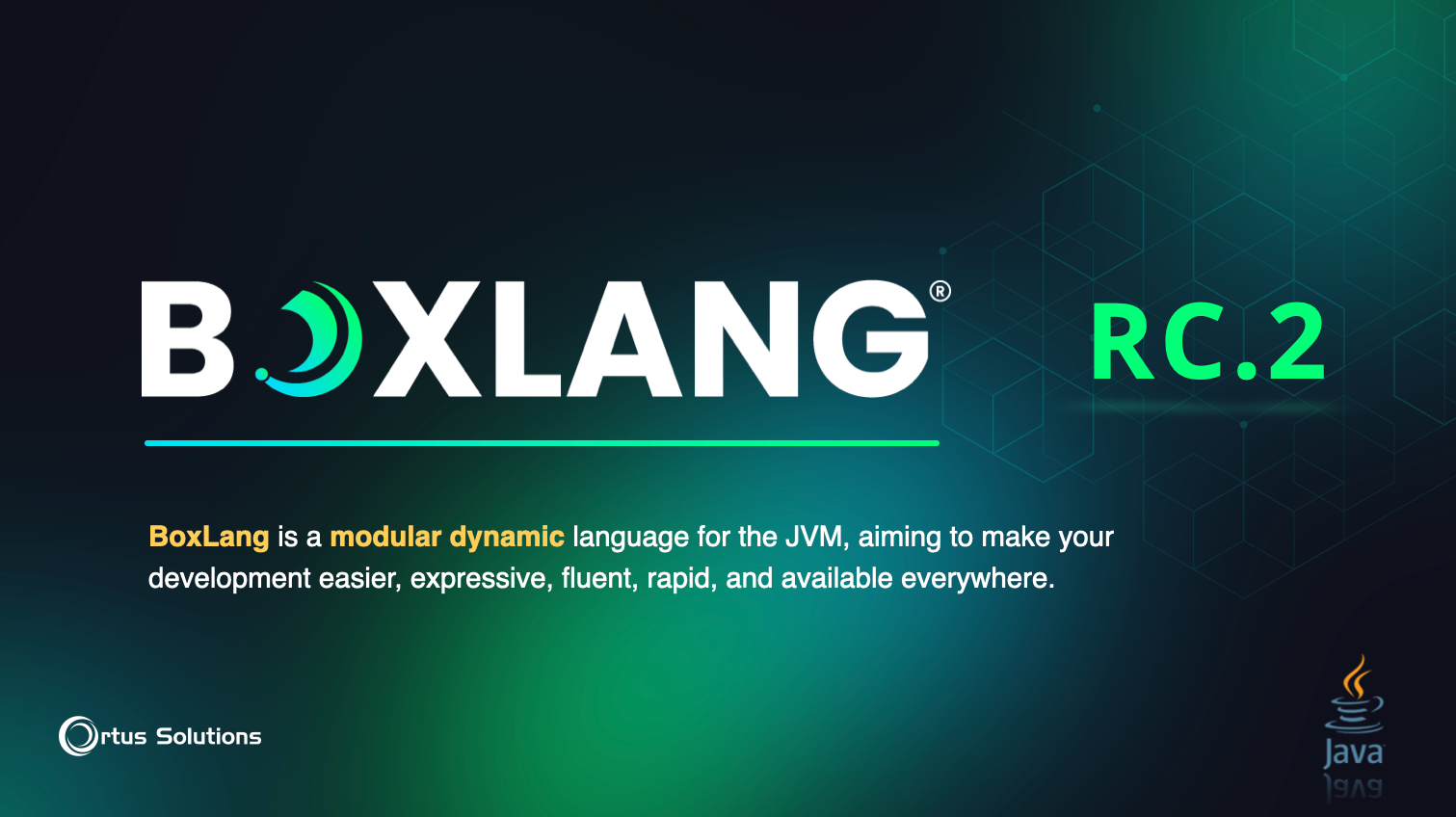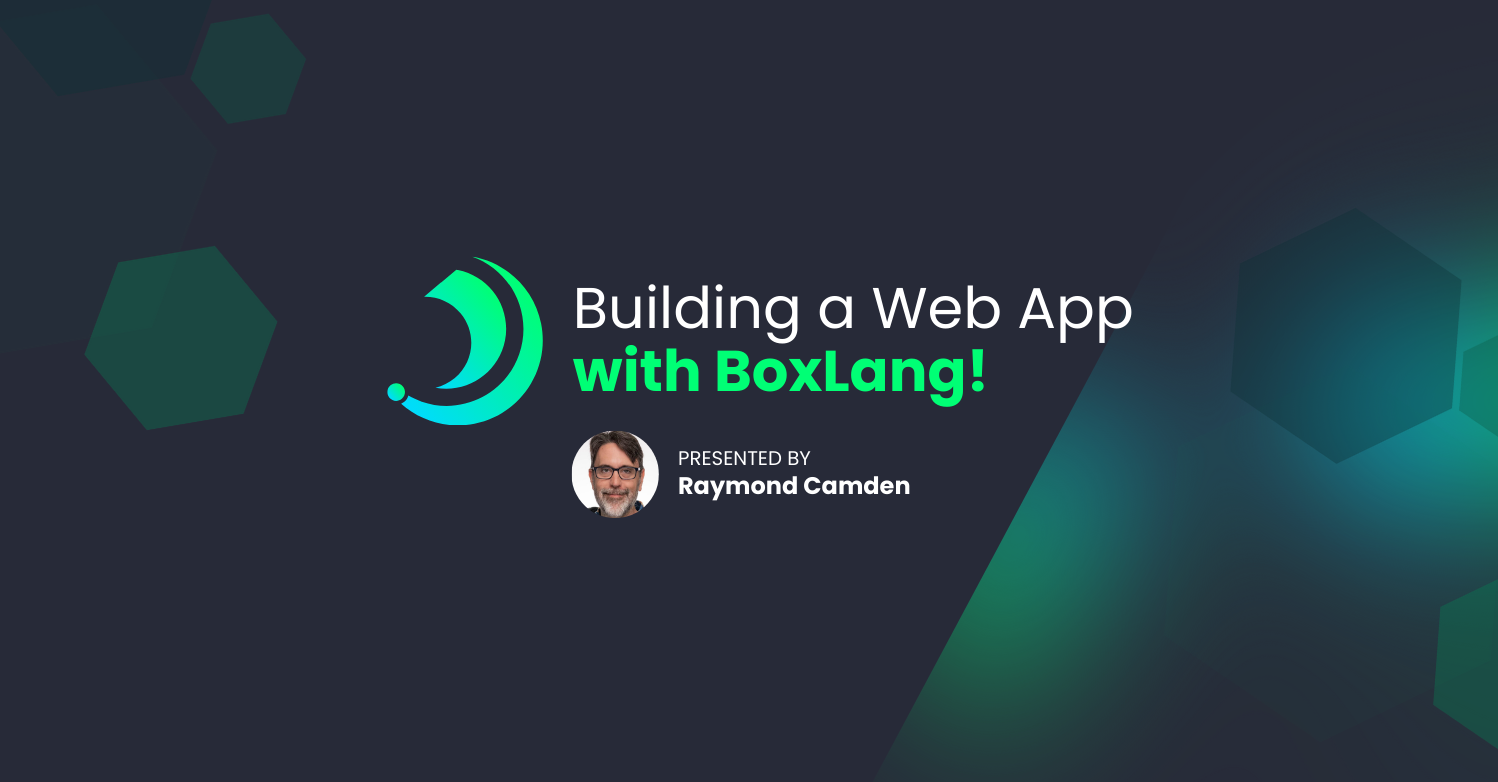We have really kicked into gear with this release, tackling a whopping 26 tickets and delivering some of our most aggressive features to date. This update signifies a significant leap forward towards a stable release in the Fall. Thank you for your continued support and stay tuned for more exciting developments!
What is BoxLang?
BoxLang is a modern dynamic JVM language that can be deployed on multiple runtimes: operating system (Windows/Mac/*nix/Embedded), web server, lambda, iOS, android, web assembly, and more. BoxLang combines many features from different programming languages, including Java, ColdFusion, Python, Ruby, Go, and PHP, to provide developers with a modern and expressive syntax.
It is also a drop-in replacement for Adobe ColdFusion and Lucee Engines.

How to get started?
Visit our docs at https://boxlang.ortusbooks.com and get coding today. If you want to try it out on the web then go to our online REPL at https://try.boxlang.io. You can also checkout our YouTube playlist: https://www.youtube.com/playlist?list=PLNE-ZbNnndB-40LvAbeSeT2Oi3V2gm_B8
Release Notes
Here are the latest release notes: https://boxlang.ortusbooks.com/readme/release-history/1.0.0-beta11
New Features
BL-236 Phase I : Performance improvements for grammar and parser validation
We have been working with an amazing ANTLR expert: Jim Idle, and we have been able now after several months of hard work to merge in a complete update to our parsers. This has a massive performance increase between 5-10 times more performant than before. However, we are still not those, we have three more performance phases coming up!
BL-91 Support numeric literal separators in source code
We’ve added a small, but useful syntax to our BoxLang parser that comes from multiple other languages. Numeric placeholders allow you to place underscore characters (_) inside of a numeric literal for readability. Take a number like this
n = 1000000000
That’s 1 billion. Or was it 1 million? Or maybe it was 100 million… pauses to re-count.
With numeric place holders, your code can look like this:
n = 1_000_000_000
Ahh, so it was 1 billion! There’s no rules on where you can place the underscores, so long as they are INSIDE the number and not leading or trailing. Heck, this is valid (though pointless):
n = 1_0_0_0_0_0_0_0_0_0
You can also place numeric separators in decimals
n = 3.141_592_653_59
and in the exponent of scientific notation
1e2_345
These underscores are simply thrown away at compile time. They are not represented in the bytecode and will not appear anywhere in your running app. They are purely for readability in your source code.
BL-457 Add static assignment modifier
You can now use the static assignment modifier in your code:
static foo = "bar"
which is sugar for
static.foo = "bar"
and validate at runtime there is actually a static scope, or throw an exception.
BL-458 Add final modifier to classes
You can now use the final modifier in your classes
final class {}
which is sugar for:
class final {}
This means that your classes will not be able to be inherited from.
BL-459 final modifier for UDFs
Your UDFs can now also be declared as final
final function foo() {
}
which will set the function as final into the scope it gets registered into. Any additional function declarations with the same OR ATTEMPTS TO SET A VARIABLE OF THAT NAME will result in an error.
final function foo() {}
foo = "brad" // exception because foo is final
BL-460 Add final assignment modifier for variables
You can now add final assignment modifers to variables in your code:
final foo = "bar"
this, of course, can be used with other modifiers
final static foo = "bar"
final var foo = "baz"
The only 2 modifiers that can’t be used together are var and static since they represent different scopes.
When a variable is declared as final, the scope it is being set into will track a list of keys that are designated as final, and will prevent those keys from being modified in the future.
This is ONLY a feature of scopes. Structs and other struct-like container will not have a final concept.
The following example
final lockDown = [ 1, 2, 3 ].toImmutable()
cannot be mutated OR re-assigned.
You can see the Set of final keys for a scope via the meta object
variables.$bx.meta.finalKeySet
You can also remove keys from the set to make a variable no longer final.
final foo = "bar"
variables.$bx.meta.finalKeySet.clear() // Nothing is final in this scope now
foo = "baz" // no error
BL-469 DynamicInterop now filters non-callable methods when invoking and matching thus accelerating lookups considerably
This is a major update to our dynamic invocation with Java interop. We know only look at callable methods, where as before we looked at every single method on Java classes. This is a significant boost in performance when doing invocations and well, it also fixes a bug on ambiguity between same named methods with different visibility scopes. Relax and ride the lightning ⚡️
BL-438 Zip Utility & compress(), extract(), isZipFile() bifs
BoxLang now speaks Zip language. We have added zip and gzip capabilities to the core. This will allow us to leverage compression and extraction for modular activites, jar installations, logging, and much more. We have also created the following BIFS available to you:
compress( format, source, destination, [includeBaseFolder=true], overwrite=false )- Compress a source to a destination using available compression formats.extract( format, source, destination, [overwrite=false], [recurse=true], [filter], [entryPaths] )- Extract a zip/gzip archive to a destination with nice options.isZipFile( filepath ): Determines if the passed file can be treated as a zip archive.
We support the following formats:
zipgzip
More formats will be available for our +/++ subscribers.
Please note also that the filter arguments can be the following:
- A valid regular expression string:
".*\.txt" - A BoxLang closure or lambda
(name) => name.endsWith(".txt")- Receives the full path of the entry
- A Java Predicate:
(entry) -> entry.getName().endsWith(".txt")- Receives the
ZipEntryobject
- Receives the
In our next betas we will have a the Zip component which will allow you to do the following:
- Compress Files
- Extract Files
- List File Entries
- Delete File Entries
- Read File Entries
- Read Binary File Entries
- Much More.
BL-447 java.math.BigInteger caster
We had a BigDecimal caster, now we have a BigInteger caster. Not only that, we can correctly coerce Java interop calls for BigDecimal and BigInteger.
Improvements
BL-433 Allow the incorrect foo..bar syntax that Adobe allows for
BL-446 Cache sets() and getOrSets() does not accept duration in seconds alongside Duration objects.
BL-455 Enhance ClassMetadataVisitor
BL-468 Enhance feature audit to track QoQ separate
BL-456 Validate var outside of a function
BL-463 Support Adob'e loose comma parsing in their generic tag-in-script syntax
BL-465 Enhance errors for identifiers starting with numbers
BL-470 File And Directory BIFs to auto-expand received paths
BL-431 Support variable starting with number
Bugs
BL-461 Compatible encryption with lucee/acf
BL-462 replace() and replaceNoCase() should accept "one" not "once" for the scope
BL-464 tag comments not parsing inside output tag in template parsers
BL-466 parsing fails with extra whitespace in closing output tag
BL-467 <cfset and <bx:set fail if not followed by a space
BL-472 Debugger breakpoints not working regression
BL-473 BoxLang Error is not readable
BL-454 Tag island Templating outputs in unexpected order




Add Your Comment